
An attic inspection can confirm structural components, insulation, and home systems are all in order. Learn about attic inspection costs and what to know.
Inspect the unexpected and get your potential new home checked out before buying


Hire a home inspector to identify which types of home inspections you need based on your unique budget and goals.
A general home inspection makes sense in most situations, as it covers the most important systems and areas of your home.
While an asbestos inspection is the most expensive option, it’s often worth it if your home was built before 1980.
A roof inspection makes sense if your roof is more than 10 years old.
If you’re preparing to buy a home, you’re likely familiar with home inspections. But did you know that there are several different types of home inspections?
The type of home inspection you need varies based on the property and its location. You likely won’t need them all, but we’ve listed the most common types so you can make an informed decision and reduce the risk of unexpected repairs down the line.
| Inspection Type | Average Cost |
|---|---|
| General home | $296–$424 |
| Plumbing | $100–$500 |
| Roof | $125–$357 |
| Chimney | $100–$5,000 |
| Electrical | $100–$400 |
| Lead-based paint | $300–$700 |
| HVAC system | $70–$500 |
| Pest | $125–$450 |
| Mold | $302–$1,045 |
| Foundation | $300–$3,000 |
| Radon | $146–$714 |
| Asbestos | $1,192–$3,256 |
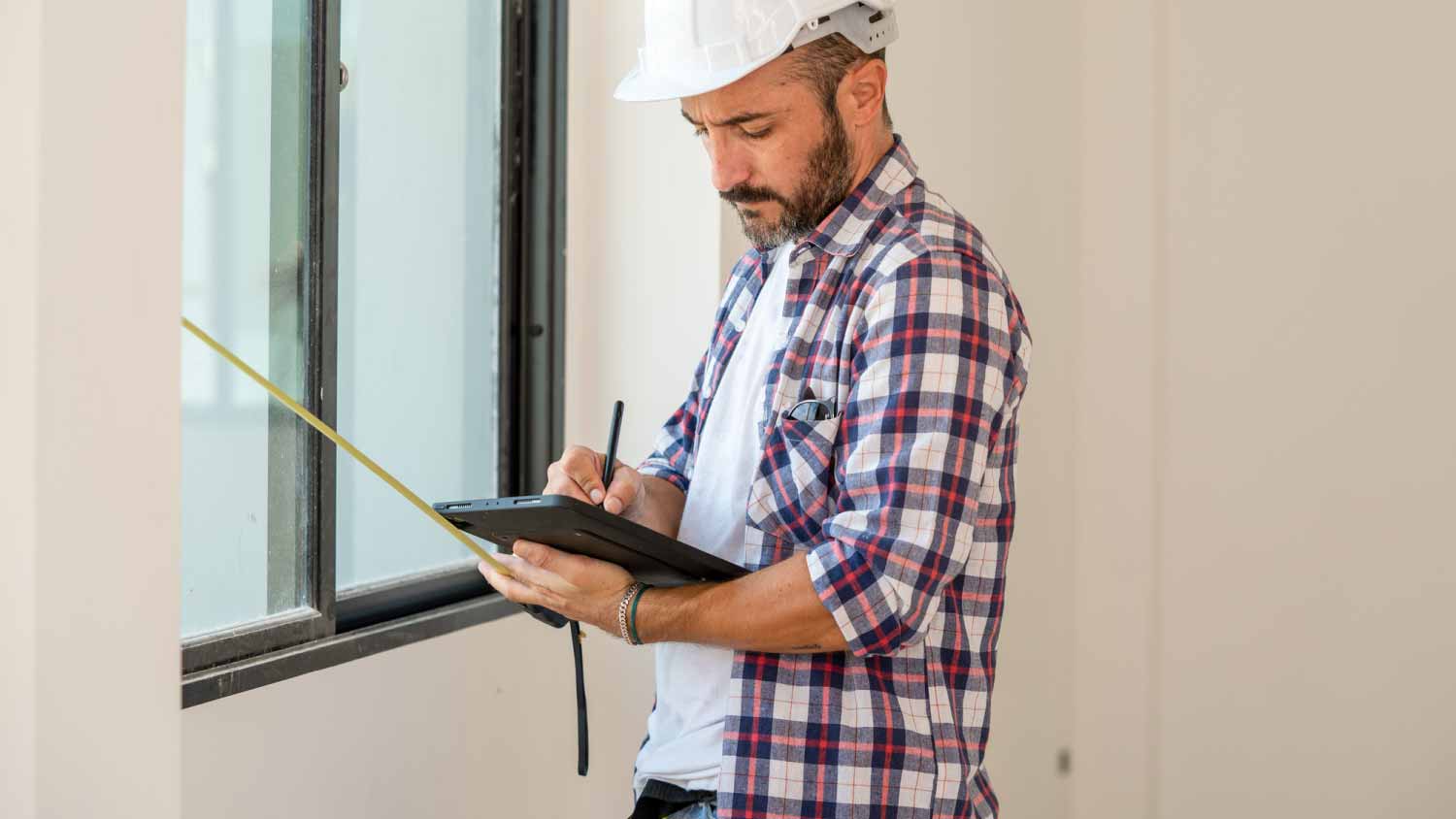
A general home inspection is usually the best place to start. As the most common type of home inspection, it helps potential buyers get an overall sense of the home’s condition. Based on the home inspection report, you may want to investigate potential issues further with a specialized inspection of that home feature or system.
A general home inspection focuses on areas of the property that the home inspector can easily access, including walls, ceilings, porches, roofing, basic plumbing, and ventilation. They often won’t inspect crawl spaces or spend too much time on HVAC systems, for example, unless you ask them specifically. The average cost of a general home inspection is $296 to $424, and you can find a home inspector near you to provide an accurate estimate based on your home size and location.
If you’re having unidentifiable problems with your home’s plumbing, ranging from dripping faucets to malfunctioning water heaters, you may benefit from a plumbing inspection. A plumbing inspector will evaluate the connections to sinks and other fixtures, test the water pressure, check that everything drains as it should, and verify that the water heater works properly. A plumbing inspection costs $100 to $500, on average.
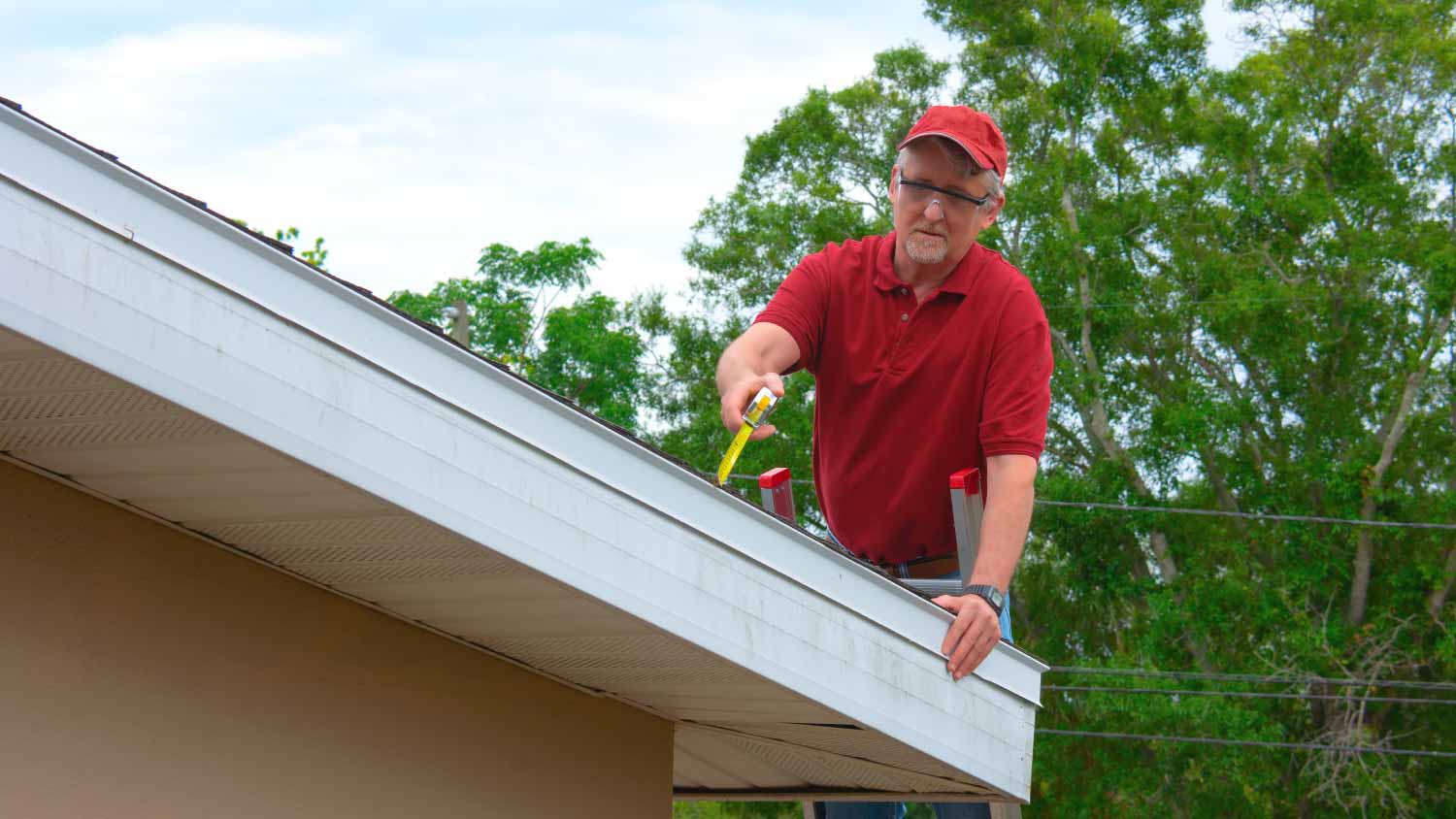
The roof protects your home from the elements, including rain, sleet, and high winds, so inspecting the roof is one of the most important types of home inspections when buying a house. A proper roof inspection will evaluate its surface for signs of damage, such as rotting wood, damaged or loose shingles, overgrown moss, exposed nails, and developing mold. Signs of leaks in the attic or water damage spots on the ceiling can point toward serious roof issues, too.
An inspection is crucial if the roof is over 10 years old. When it’s time to find a home inspector for a roof inspection, look for a reputable roofing professional who is licensed by the National Roof Certification and Inspection Association (NRCIA). A roof inspection costs $125 to $357, on average.
Chimney inspections can reveal potential risks and hazards that could otherwise lead to carbon monoxide exposure and even house fires. Over time, the inside of the chimney can accumulate a combustible material called creosote from burning wood. Fallen twigs, leaves, and other obstructions can be problematic for a chimney’s functioning, too.
A chimney inspection looks for warning signs, such as crumbly black soot, buckling brick, and water at the base of the fireplace. The inspector wants to make sure the chimney is venting correctly and safely. The Chimney Safety Institute of America (CSIA) certifies chimney specialists for these inspections. The average chimney inspection costs anywhere from $100 to $5,000.
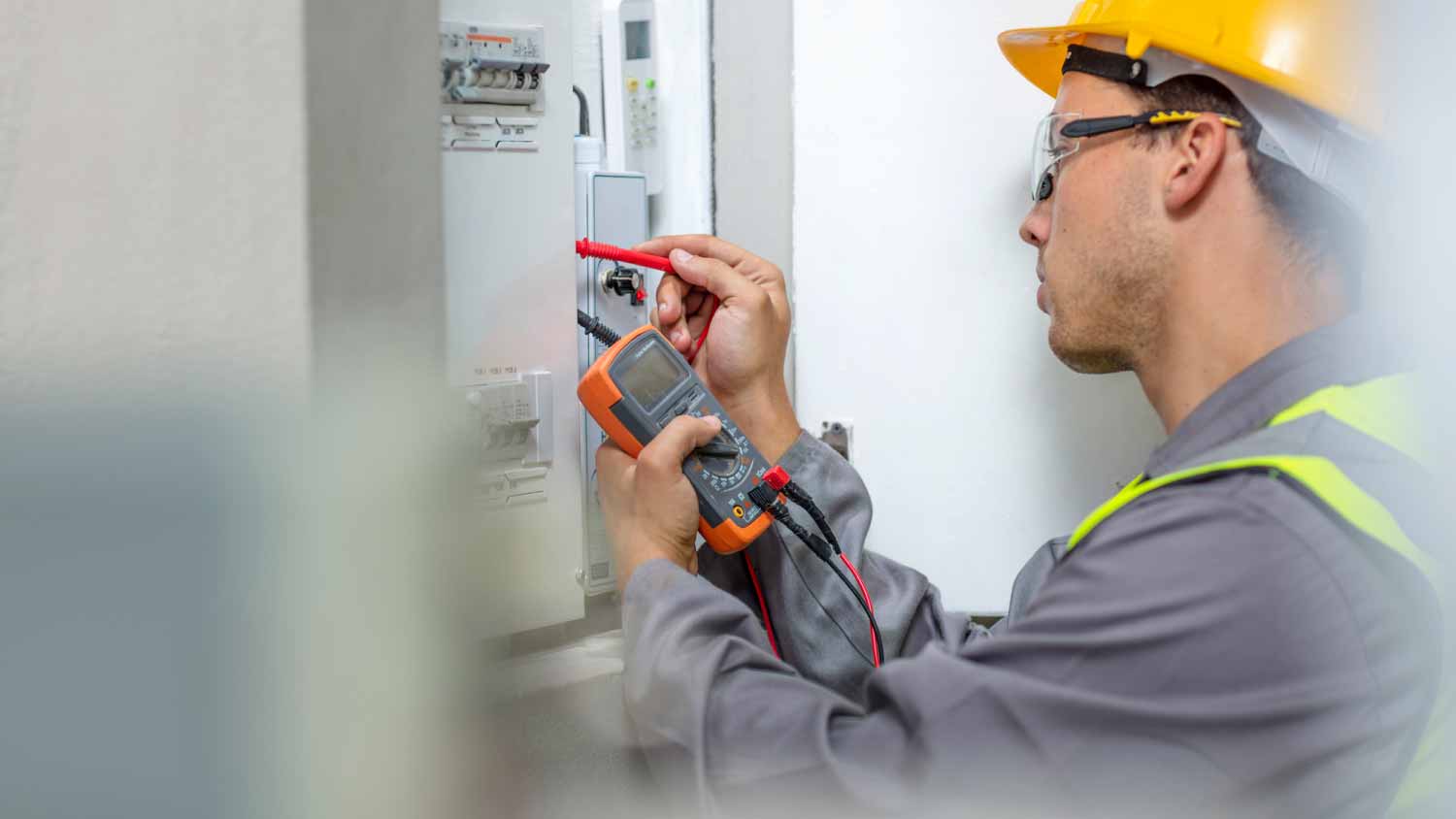
Electrical systems in older houses may not be up to modern codes and standards. Frayed wires can malfunction, damage appliances, or cause electrical fires. An electrical home inspection looks for telltale signs like humming or buzzing sounds, flickering lights, ungrounded outlets, exposed wiring, or overloaded fuse boxes.
Inspecting the electrical system is equally important as part of new home construction inspections. Hire only licensed electricians, as using an unlicensed electrician may void your homeowner’s insurance. An average electrical inspection costs $100 to $400.
The federal government banned lead-based paint in 1978, meaning houses built before then may still have lead-based paint on their walls, sometimes hidden behind newer layers of paint. Exterior paint, including on porches, may contain lead, too. Lead paint can pose a health risk for your family and loved ones—children are especially vulnerable to lead poisoning.
The Environmental Protection Agency (EPA) authorizes who can conduct a lead-based paint inspection. It involves a visual inspection, looking for chipped or peeling paint, and analyzing paint samples from each room in the home. Ask top home inspection companies near you if they are EPA-authorized for lead paint testing before hiring. Lead-based paint inspection costs between $300 and $700, on average.
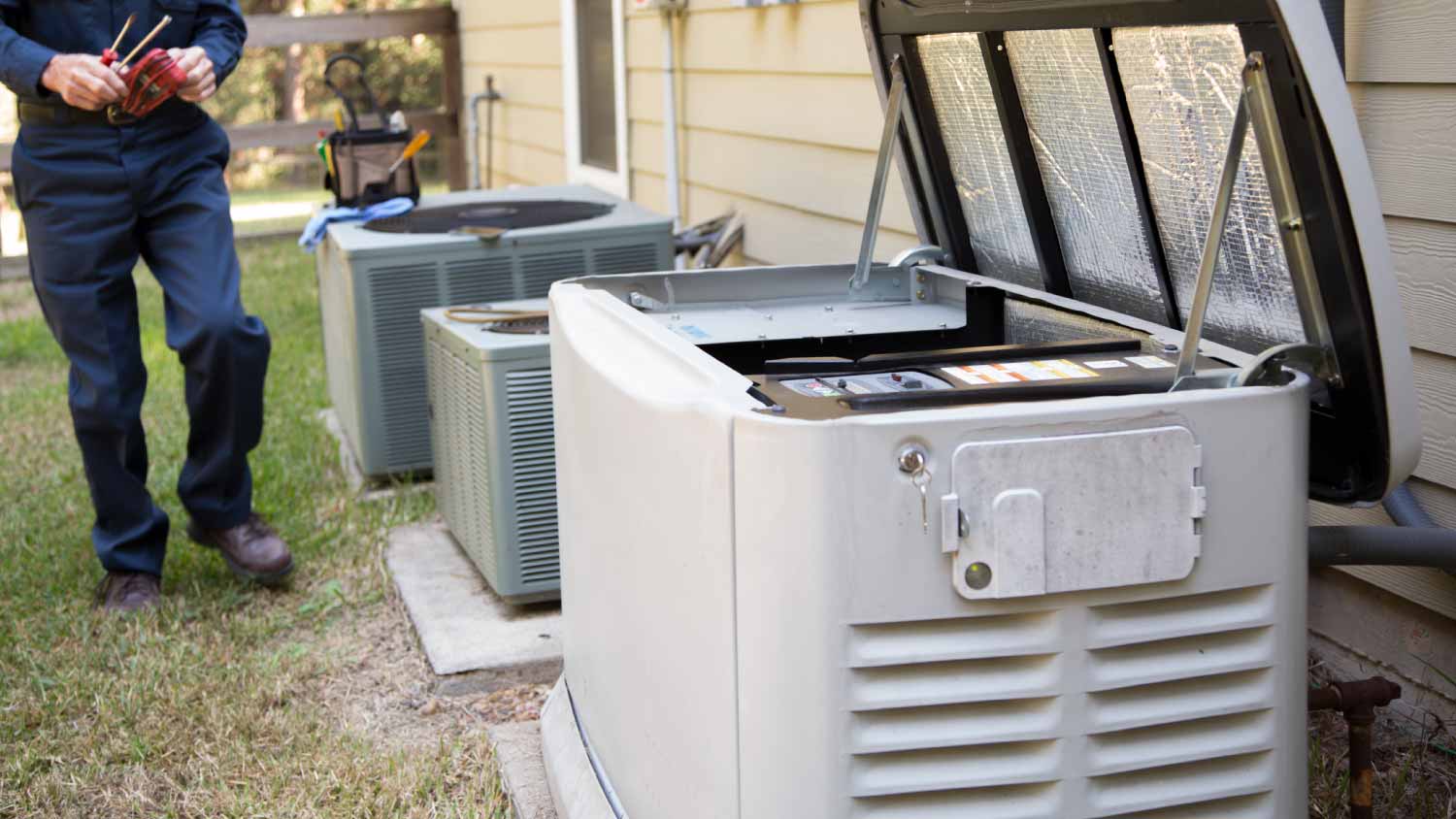
Of the various types of home inspections, an HVAC system inspection is one of the most important. It can identify problems that could cause uneven temperatures in the home but also potential risks like carbon monoxide exposure.
The inspector looks at the state of the HVAC system, including thermostat calibration, air filters, electrical connections, and airflow. Even if it is not a health risk, a poorly functioning HVAC system can lead to increased heating and cooling costs. A licensed HVAC technician is well-suited for this type of home inspection—HVAC inspections cost between$100 and $400. Your HVAC technician can then recommend if any components need repairing, maintaining, or replacing.
A variety of pests can wreak havoc on your home, including cockroaches, bedbugs, and rodents. Pests can find their way between walls and floors, further damaging parts of your house that you may not be able to see. Along with a wood-destroying organism (WDO) inspection, a general pest inspection looks for signs like droppings, wood damage, gnawed wiring, and scratching sounds.
Certain types of pests, like termites or carpenter ants, are more common in different parts of the country, and a local professional will have a stronger grasp of what to look for in your area. Some states require a WDO inspection to close on a home, and you can expect these pest inspections to cost $125 to $450. WDO inspections may be required for VA or FHA loans, too.
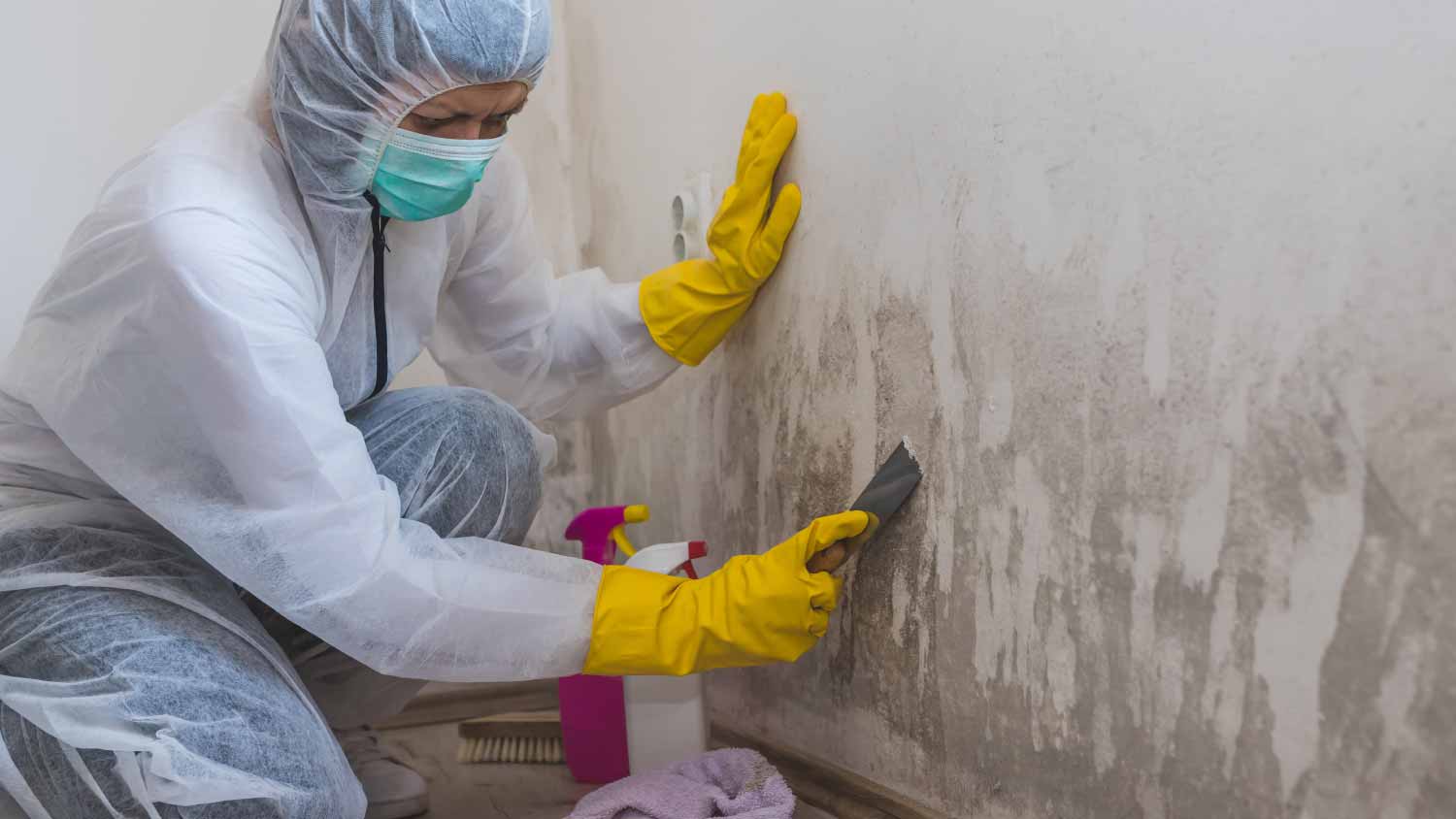
The most obvious sign of mold is to notice dark spots on walls. Other warning signs include musty smells, indications of water damage, and bubbling wallpaper. Mold can also develop where you cannot see it, between walls where there may be leaky pipes or high condensation levels.
Investing in a thorough mold inspection is worthwhile, especially if the general home inspection reveals possible warning signs. Mold inspections cost $302 to $1,045, on average. Mold can multiply and spread quickly, potentially leading to serious health problems. Along with a visual assessment, a mold inspection may include air and surface samples for testing, and thermal imaging.
A severe problem with the foundation is one of those things that fail a home inspection. The structural integrity of your house depends on having a solid foundation. When the foundation is unsound or damaged, it can lead to cracked walls, sticking doors, uneven floors, mold damage, and leaning chimneys.
Structural engineers are best suited for conducting foundation inspections, costing an average of $300 to $3,000. They look for issues like drainage problems, encroaching tree roots, and indications that the foundation may have moved or is moving. Foundation repair can easily cost several thousand dollars, so you’ll want to consider any issues before closing the deal on a home.
Radon is a gas that can enter the house through cracks, crawl spaces, and basements. The second leading cause of lung cancer in the U.S., radon gas is odorless and colorless, so the only way to detect it is to test for it. The EPA estimates that one in every 15 American homes has an elevated radon level.
A certified way to measure radon in your home is for a professional radon inspector to conduct two 48-hour tests about two or three days apart. Radon inspections cost an average of $146 to $714. A radon reading of over 4 picocuries per liter of air (pCi/L) is a cause for concern. Your home inspector can offer recommendations for how to reduce high readings.
Asbestos is a mineral previously used in various residential building materials, like roofing and floor tiles, before 1980 but is now known to pose a health risk. The sellers may not be aware of asbestos in the house, as the material only poses a health risk when its fibers are released into the air. If sellers are aware of asbestos, they are legally required to tell potential buyers.
Checking for asbestos is especially important if you plan on any home improvement projects. A home inspector may be able to identify “asbestos-like material” in the house. To be sure, they will need to collect a sample to identify under a microscope. Hire a certified asbestos removal company to conduct the inspection. Asbestos removal costs an average of $1,192 to $3,256.
With so many possibilities, you may wonder what types of home inspections are necessary. The rules for what, if any, home inspections are mandatory will vary from state to state. Most home buyers start with a general home inspection to reveal potential problems needing further investigation.
Home inspections don't cover everything. Swimming pools, appliances, sewers, pest control, lead paint, hazardous materials, fireplaces, and chimneys are some of the main items not covered under standard home inspections. You'll need an add-on or specialty inspection to cover these things.
Regarding who pays for a home inspection, the seller may decide to pay for a pre-listing home inspection, but the cost of the inspection usually falls on the buyer. A home inspection can be added as a condition to the purchase offer. If anything comes up in the report, the buyer can then negotiate with the seller either to fix the problem or lower the home’s purchase price. In many cases, you can include this general inspection as part of any initial home appraisal costs you may have.
From average costs to expert advice, get all the answers you need to get your job done.

An attic inspection can confirm structural components, insulation, and home systems are all in order. Learn about attic inspection costs and what to know.

Drone roof inspection costs vary depending on the roof’s size, complexity, and material. Use this guide to budget for a drone roof inspection.

If you’re buying a home, having an inspection offers reassurance that it’s in good condition. How much a home inspection costs varies depending on the home's size, age, condition, and location.

A home inspection can help homeowners find issues and understand their home’s condition. Use this guide to learn what a home inspection covers.

Preparing for your next roof inspection? Here are five common roof inspection questions you'll want to discuss with your contractor.

Uncover the secrets of home inspections, including costs and failures, as well as whether you should get it done before or after making an offer.